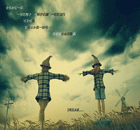Society
Genetic analysis may lead to ancient tomb truth: experts
(Xinhua)
Updated: 2010-01-26 21:56
 |
Large Medium Small |
SHANGHAI: Anthropologists with the Shanghai-based Fudan University announced Tuesday that they would collect DNA samples of possible offsprings of Cao Cao, a renowned politician and general in ancient China, to help confirm whether the tomb excavated in the central province of Henan is his.
Experts with the key lab of contemporary anthropology under the Ministry of Education and affiliated to the university aim to find out the characteristics of the Y chromosome of Cao's family through summerizing chromosome mutation information of some Chinese men surnamed Cao.
According to the experts, as for human genome, mutations would occur in the basepairs every 17 generations. The mutations are called SNP (Single Nucleotide Polymorphism). Male members on one family tree carry certain SNP mutation information, which will be inherited by their descendants.
| ||||
Though it's difficult to pick up full genome sample from Cao Cao's remain, which was almost in fragments, Li said it was feasible to find out a certain basepair in Cao Cao's remain in accordance with characteristics of SNP mutations in Y chromosome of his offsprings.
Historical researches show that Cao Cao was probably a descendant of Xiaohou clan. Therefore sample collection will also cover Chinese men surnamed Xiahou.
Genealogical materials will be also used to narrow down sampling, according to Li.
Dozens of volunteers from all over China had applied for the project and some even provided their clan trees, said Li.
Li said samples from at least several hundreds of Chinese men surnamed Cao were needed. If sufficient samples were collected, it would take six months to complete the genetic analysis, he added. But he did not say whether the research result would be made public.
Cao Cao (155-220 A.D.), who built the strongest and most prosperous state during the Three Kingdom period (208-280 A.D.), is remembered for his outstanding military and political talents.
The alleged Cao Cao tomb was excavated in Anyang City of central China's Henan Province on December 27, 2009. Some archeologists determined it was Cao Cao's tomb in line with burial sacrifices, mainly stone carvings and personal daily utensils. But some other scholars and netizens doubted the judgement. They reckoned the stone carvings might be counterfeits.











